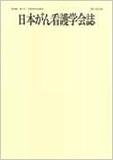Japanese
English
- 販売していません
- Abstract 文献概要
- 参考文献 Reference
- サイト内被引用 Cited by
要旨
目的:本研究の目的は看護師が認識するAYA世代のがん患者の困難事例の年齢層別特徴と,困難事例に対する看護の質を向上させるために必要であったことを明らかにすることである.
方法:小児がんを含む,がん診療連携拠点病院の看護師で,15〜39歳の患者の治療/継続観察を行っている部署に所属しており,調査時点において部署に所属してから1年以上経過している者を対象に質問紙調査を行った.
結果:有効回答1,627名を分析対象とした。看護師が認識する困難事例の困難の内容は,15〜19歳では,「予後不良の告知」「患者の意思決定」「教育の継続」,20〜24歳では,「治療拒否・脱落」「就労支援」,25〜39歳では,「家族関係・家族の問題」が多かった.
考察:本研究結果より,看護師は年齢層ごとに異なる困難をかかえている可能性が示唆された.特にターミナル期には,親の意向が優先される可能性が高く,思春期のがん患者が望むターミナル期を送れないケースがある.親の心理的問題が関連している可能性があり,AYA世代のターミナルケアの前提条件として,親への心理的支援を強化する必要がある.
Aim: The aim of this study was to clarify the characteristics by age group of difficult cases as perceived by nurses in the care of adolescents and young adults (AYA) with cancer.
Methods: A cross-sectional study was conducted among nurses at Japanese designated cancer hospitals in 2016. We conducted a questionnaire survey about the most difficult cases as perceived by nurses in caring for AYA cancer patients. The study sample included nurses who had been working for more than 1 year in a department that treats or continuously observes 15- to 39-year-old cancer patients.
Results: Participants comprised 1,627 nurses. Difficulties were characterized as "notification of poor prognosis", "support for patient decision-making" and "assurance of patient's opportunities for education" for 15- to 19-year-olds, "refusal/drop-out of treatment" and "support for employment" for 20- to 24-year-olds, and "family relationships/family issues" for 25- to 39-year-olds.
Conclusion: The results of this study revealed that the types of difficulties recognized by nurses vary between age groups. Particularly in the terminal period, parental intentions might be prioritized in the case of 15- 19 AYA cancer patients.
Copyright © 2023, Japanese Society of Cancer Nursing All rights reserved.


